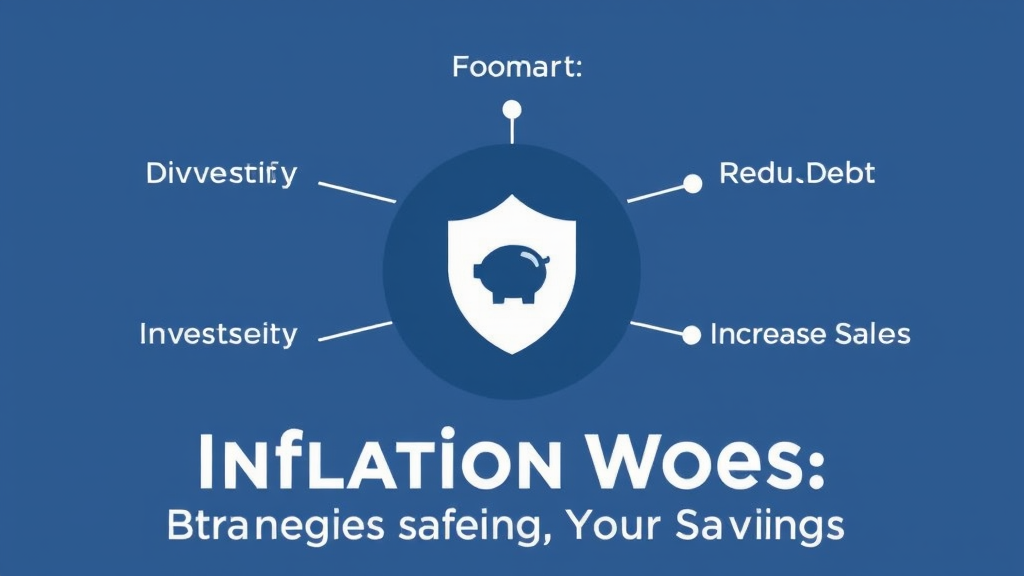Introduction to Global Supply Chain Disruptions
Definition of Supply Chain Disruptions
Supply chain disruptions refer to interruptions in the flow of goods and services , impacting production and delivery. These disruptions can arise from various factors, including natural disasters, geopolitical tensions, or pandemics. Such events can lead to significant financial losses for businesses. It’s crucial to understand these dynamics. They can affect market stability and consumer confidence. The implications are far-reaching. Companies must adapt to maintain operational efficiency. This is a pressing issue today.
Historical Context and Recent Events
The historical context of supply chain disruptions reveals patterns of vulnerability. Key events include the 2008 financial crisis, which exposed weaknesses in global logistics. Additionally, the COVID-19 pandemic caused unprecedented interruptions. These events highlighted the fragility of interconnected supply networks.
Recent disruptions have been driven by geopolitical tensions and trade wars. For instance, the U.S.-China trade conflict affected tariffs and sourcing strategies. Companies faced increased costs and delays. This is a significant concern for many businesses. Understanding these historical events is essential for future planning.
Impact of COVID-19 on Supply Chains
The COVID-19 pandemic significantly disrupted global supply chains. He observed widespread factory shutdowns and transportation delays. These interruptions led to inventory shortages and increased costs. Many businesses struggled to meet consumer demand. This situation created a ripple effect across various sectors. He noted that companies had to reassess their sourcing strategies. Flexibility became crucial in adapting to changing conditions. This is a vital lesson for future resilience.
Role of Technology in Supply Chain Management
Technology plays a crucial role in enhancing supply chain management. He recognizes that advanced analytics and artificial intelligence improve decision-making processes. These tools enable businesses to predict demand more accurately. Consequently, they can optimize inventory levels and reduce costs. Additionally, blockchain technology enhances transparency and traceability. This fosters trust among stakeholders and mitigates risks. He believes that automation streamlines operations and increases efficiency. This is essential for maintaining competitiveness in the market.
Understanding the Implications for Businesses
Operational Challenges Faced by Businesses
Businesses face significant operational challenges today. Supply chain disruptions lead to increased costs and delays. He notes that managing logistics has become to a greater extent complex. This complexity strains resources and impacts profitability. Additionally, workforce shortages hinder production capabilities. Many companies struggle to maintain efficiency. This is a pressing issue. Adapting to these challenges is essential.
Financial Implications and Cost Management
The financial implications of supply chain disruptions are significant. He observes that increased costs can erode profit margins. This situation necessitates effective cost management strategies. Companies must analyze their expenditures carefully. Identifying inefficiencies can lead to substantial savings. He emphasizes the importance of budgeting and forecasting. Accurate financial planning is crucial for sustainability. This is a fundamental aspect of business success.
Strategic Shifts in Business Models
Strategic shifts in business models are increasingly necessary. He notes that companies must adapt to changing market conditions. This adaptation often involvez embracing digital transformation. Such changes can enhance operational efficiency and customer engagement. Additionally, businesses are exploring alternative revenue streams. This diversification mitigates risks associated with market volatility. He believes that agility is essential for long-term success. This is a critical factor in today’s economy.
Long-term vs. Short-term Impacts
The impacts of supply chain disruptions can be both long-term and short-term. In the short term, businesses may experience immediate financial losses. These losses can stem from increased operational costs and reduced sales. He emphasizes that quick recovery strategies are essential. In contrast, long-term impacts may include shifts in consumer behavior. Companies must adapt their strategies accordingly. This adaptation is crucial for sustained growth. He believes that foresight is vital for future planning. This is a key consideration for all businesses.
The Role of Cryptocurrency in Supply Chain Solutions
Blockchain Technology and Transparency
Blockchain technology enhances transparency in supply chains. He notes that it allows for real-time tracking of goods. This visibility reduces fraud and increases accountability. Companies can verify the authenticity of products easily. He believes that this fosters trust among stakeholders. Additionally, blockchain streamlines processes and reduces costs. This is a significant advantage for businesses. Implementing such technology is a strategic move.
Smart Contracts for Automated Processes
Smart contracts facilitate automated processes in supply chains. They execute transactions based on predefined conditions. This automation reduces the need for intermediaries. Consequently, businesses can save time and costs. He emphasizes that smart contracts enhance efficiency and accuracy. They minimize human error in transactions. This is a crucial benefit for companies. Implementing these contracts is a strategic advantage.
Cryptocurrency as a Payment Solution
Cryptocurrency serves as an innovative payment solution in supply chains. It offers benefits such as lower transaction fees and faster processing times. Additionally, it enables cross-border transactions without currency conversion issues. This can significantly enhance operational efficiency. He notes that using cryptocurrency can improve cash flow management. It allows for real-time payments and reduces delays. This is a compelling advantage for businesses. Adopting cryptocurrency is a forward-thinking strategy.
Case Studies of Successful Implementations
Several companies have successfully implemented cryptocurrency in their supply chains. For instance, a major retailer utilized blockchain to enhance traceability. This improved product authenticity and reduced fraud. He notes that another logistics firm adopted cryptocurrency for cross-border payments. This streamlined their operations and minimized transaction costs. These case studies demonstrate significant efficiency gains. They highlight the potential for broader adoption. This is an encouraging trend for the industry.
Risk Management Strategies for Businesses
Diversification of Supply Sources
Diversification of supply sources is a critical risk management strategy. He emphasizes that relying on a single supplier increases vulnerability. By sourcing from multiple suppliers, businesses can mitigate disruptions. This approach enhances resilience against market fluctuations. Additionally, it allows companies to negotiate better terms. He notes that this flexibility can lead to cost savings. It is essential for maintaining competitive advantage. Companies should evaluate their supply chains regularly. This is a proactive measure for sustainability.
Investment in Technology and Innovation
Investment in technology and innovation is vital for risk management. He asserts that adopting advanced tools enhances operational efficiency. This can lead to significant cost reductions over time. Furthermore, technology enables better data analysis and forecasting. These capabilities improve decision-making processes. He believes that innovation fosters adaptability in changing markets. This is crucial for long-term sustainability. Companies should prioritize technology investments strategically. This is a necessary step for growth.
Building Resilience in Supply Chains
Building resilience in supply chains is essential for businesses. He emphasizes the importance of proactive risk assessment. Identifying potential vulnerabilities allows for strategic planning. Additionally, companies should develop contingency plans for disruptions. This preparation minimizes operational downtime and financial losses. He believes that collaboration with suppliers enhances resilience. Strong partnerships can lead to shared resources and information. This is a critical factor for success. Regularly reviewing and updating strategies is necessary. This ensures ongoing adaptability in a dynamic market.
Utilizing Cryptocurrency for Risk Mitigation
Utilizing cryptocurrency can effectively mitigate various risks in business operations. He notes that cryptocurrencies offer a hedge against currency fluctuations. This stability can protect profit margins during volatile market conditions. Additionally, using cryptocurrency for transactions can reduce fees associated with traditional banking. This leads to improved cash flow management. He believes that faster transaction times enhance operational efficiency. This is crucial for maintaining competitive advantage. Furthermore, cryptocurrencies can facilitate cross-border payments seamlessly. This eliminates delays and reduces reliance on intermediaries.
Future Trends in Global Supply Chains
Emerging Technologies and Their Impact
Emerging technologies are reshaping global supply chains significantly. He highlights that artificial intelligence enhances predictive analytics. This capability allows businesses to forecast demand accurately. Additionally, the Internet of Things (IoT) improves real-time tracking of inventory. This leads to better resource management and reduced waste. This is essential for maintaining competitiveness. Furthermore, blockchain technology enhances transparency and security.
Shifts in Consumer Behavior and Expectations
Shifts in consumer behavior are influencing supply chain dynamics. He observes that consumers increasingly demand faster delivery times. This expectation pressures businesses to optimize logistics. Additionally, there is a growing preference for sustainable products. Companies must adapt their sourcing strategies accordingly. He notes that transparency in supply chains is becoming essential. Consumers want to know product origins and manufacturing processes. This trend drives businesses to enhance their communication strategies. Meeting these expectations is crucial for customer loyalty.
Regulatory Changes and Compliance Issues
Regulatory changes are significantly impacting global supply chains. He notes that compliance with new standards is essential. Companies must adapt to evolving regulations regarding sustainability and safety. This often requires substantial investments in technology and training. Additionally, non-compliance can lead to severe penalties. He emphasizes that proactive risk management is crucial. This helps businesses navigate complex regulatory landscapes. Staying informed is vital for maintaining competitiveness. This is a key consideration for all industries.
Predictions for Cryptocurrency Adoption
Predictions for cryptocurrency adoption indicate significant growth in the coming years. He anticipates that more businesses will integrate cryptocurrencies into their payment systems. This integration can enhance transaction efficiency and reduce costs. Additionally, as regulatory frameworks become clearer, confidence in cryptocurrencies will increase. He believes that institutional investment will further drive adoption. This trend is essential for market stability. Furthermore, advancements in blockchain technology will facilitate broader acceptance. This is a critical factor for future developments. Companies should prepare for this shift proactively.
Conclusion: Navigating the New Normal
Summary of Key Insights
Key insights reveal the importance of adaptability in business. He emphasizes that companies must embrace emerging technologies. This includes utilizing blockchain and cryptocurrency for efficiency. Additionally, understanding consumer behavior is crucial for success. He notes that transparency and sustainability are increasingly demanded. Businesses should diversify their supply sources to mitigate risks. This strategy enhances resilience against disruptions. Regularly reviewing compliance with regulations is essential. This ensures ongoing operational integrity and competitiveness.
Call to Action for Businesses
Businesses must proactively adapt to the evolving landscape. He urges companies to invest in technology and innovation. This investment is crucial for maintaining competitiveness. Additionally, they should prioritize risk management strategies. Diversifying supply sources can mitigate potential disruptions. He emphasizes the importance of staying informed about regulatory changes. This ensures compliance and operational integrity. Companies should also engage with their consumers transparently. This builds trust and fosters loyalty. Taking these steps is essential for future success.
Final Thoughts on Cryptocurrency’s Role
Cryptocurrency plays a transformative role in modern finance. He believes it enhances transaction efficiency and security. This innovation can reduce costs for businesses. Additionally, cryptocurrencies offer a hedge against inflation. They provide an alternative to traditional banking systems. He notes that broader adoption is likely in the future. This trend will reshape global supply chains. Companies should prepare for this shift. Embracing cryptocurrency is a strategic advantage.
Encouragement for Continued Innovation
Continued innovation is essential for business success. He emphasizes that adapting to new technologies is crucial. This includes embracing digital transformation and automation. Companies should invest in research and development. This investment fosters creativity and competitive advantage. He believes that collaboration can drive significant advancements. Sharing knowledge leads to better solutions. Businesses must remain agile in a changing environment. This is vital for long-term sustainability.






